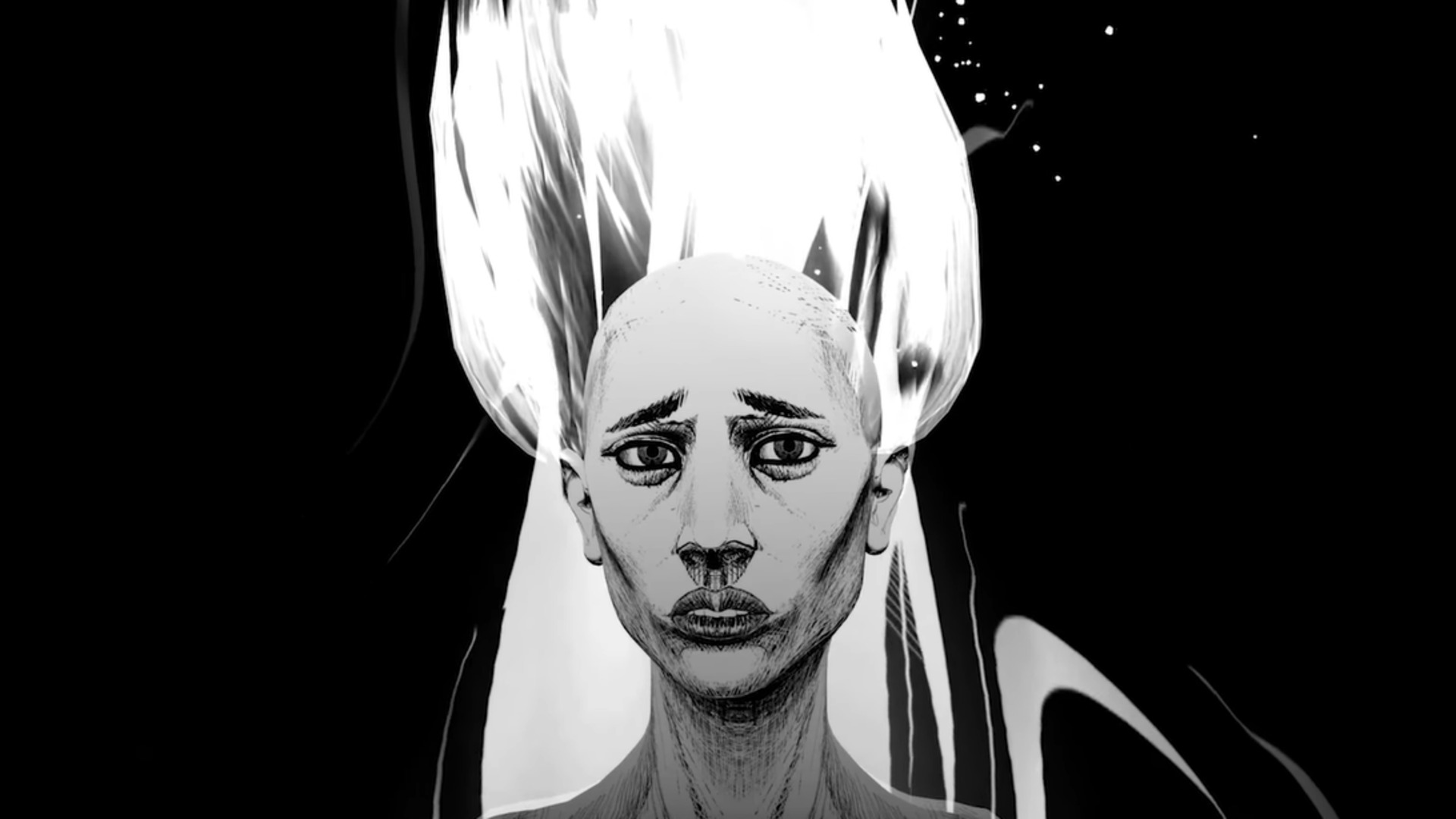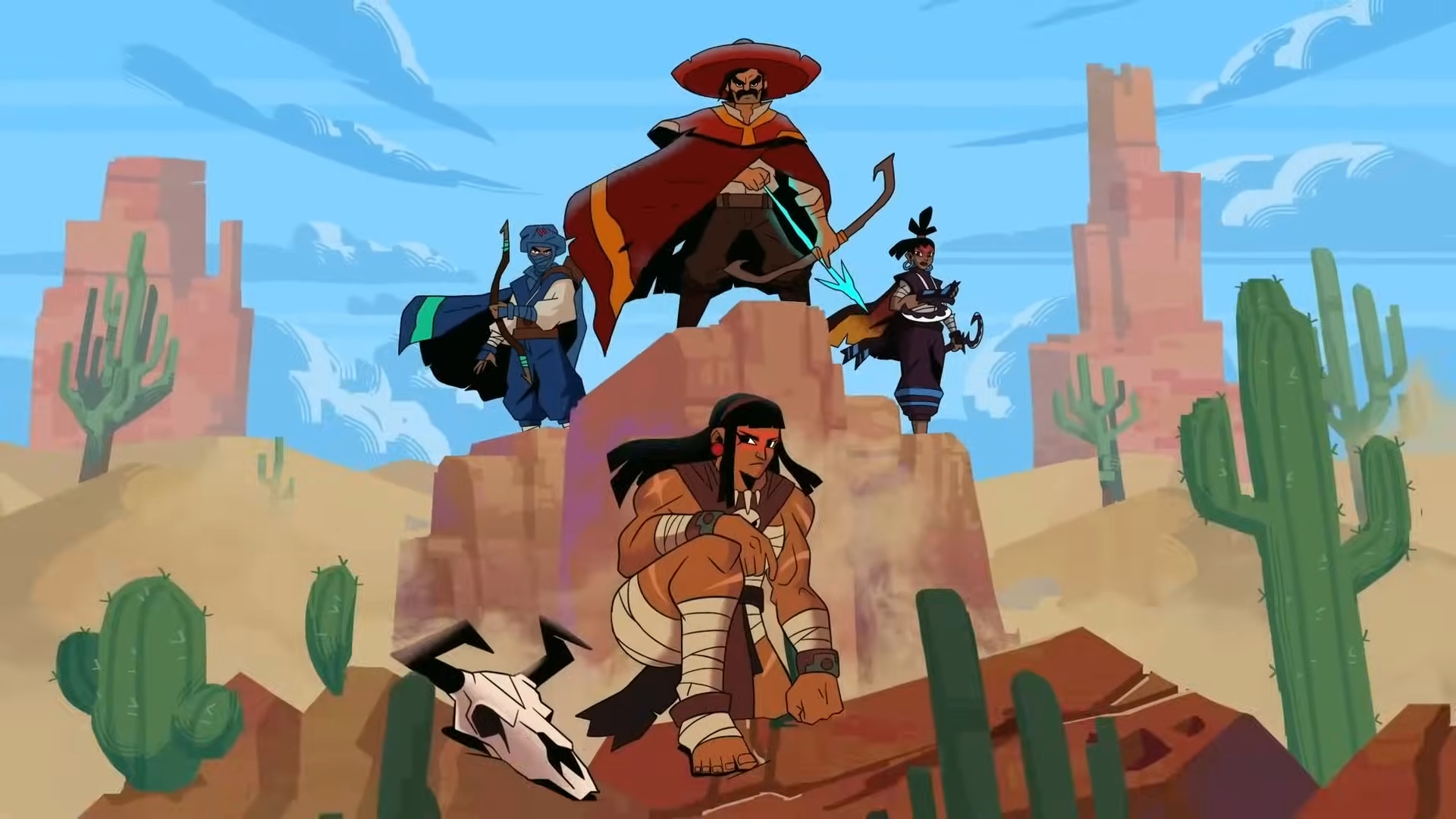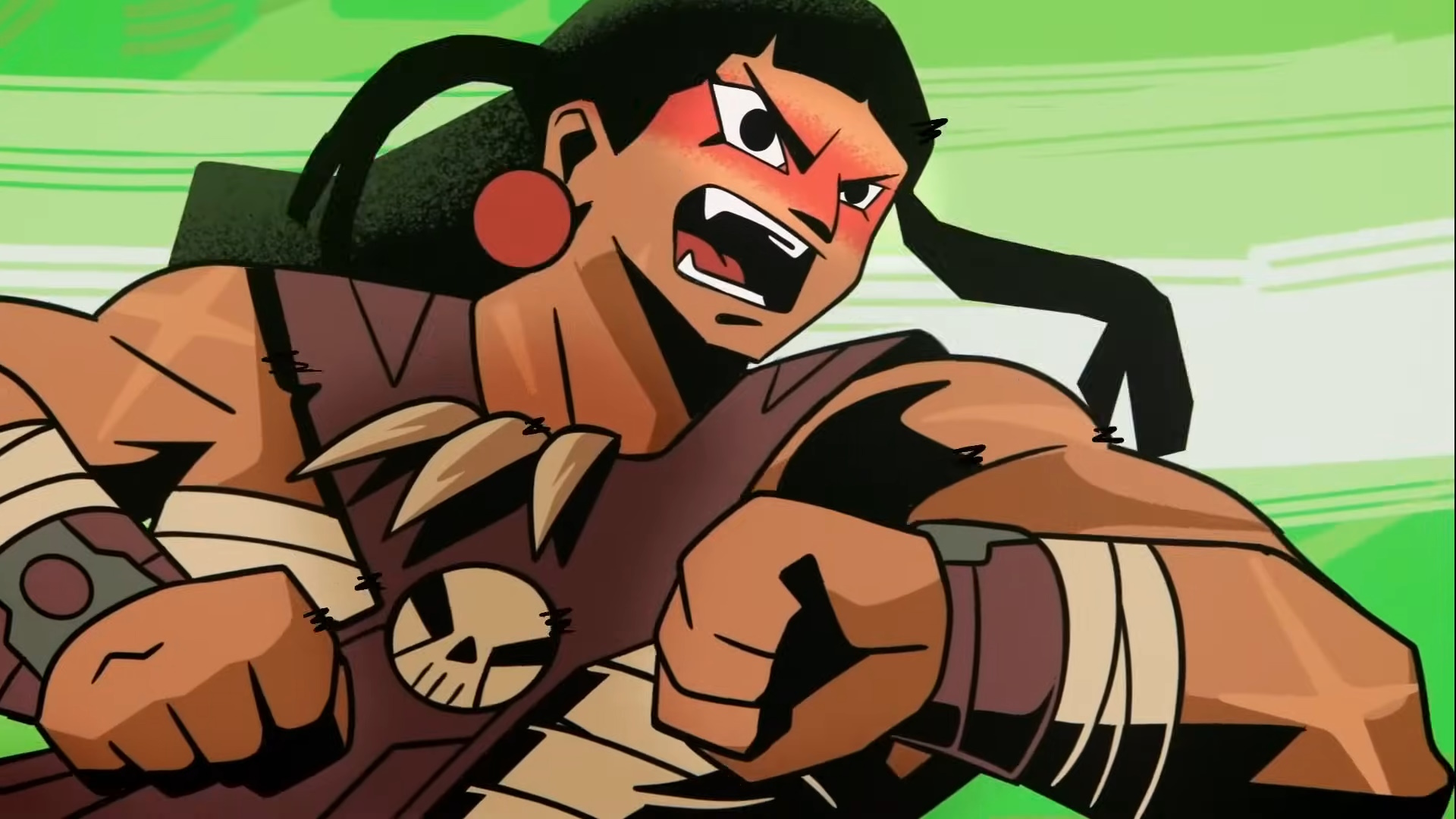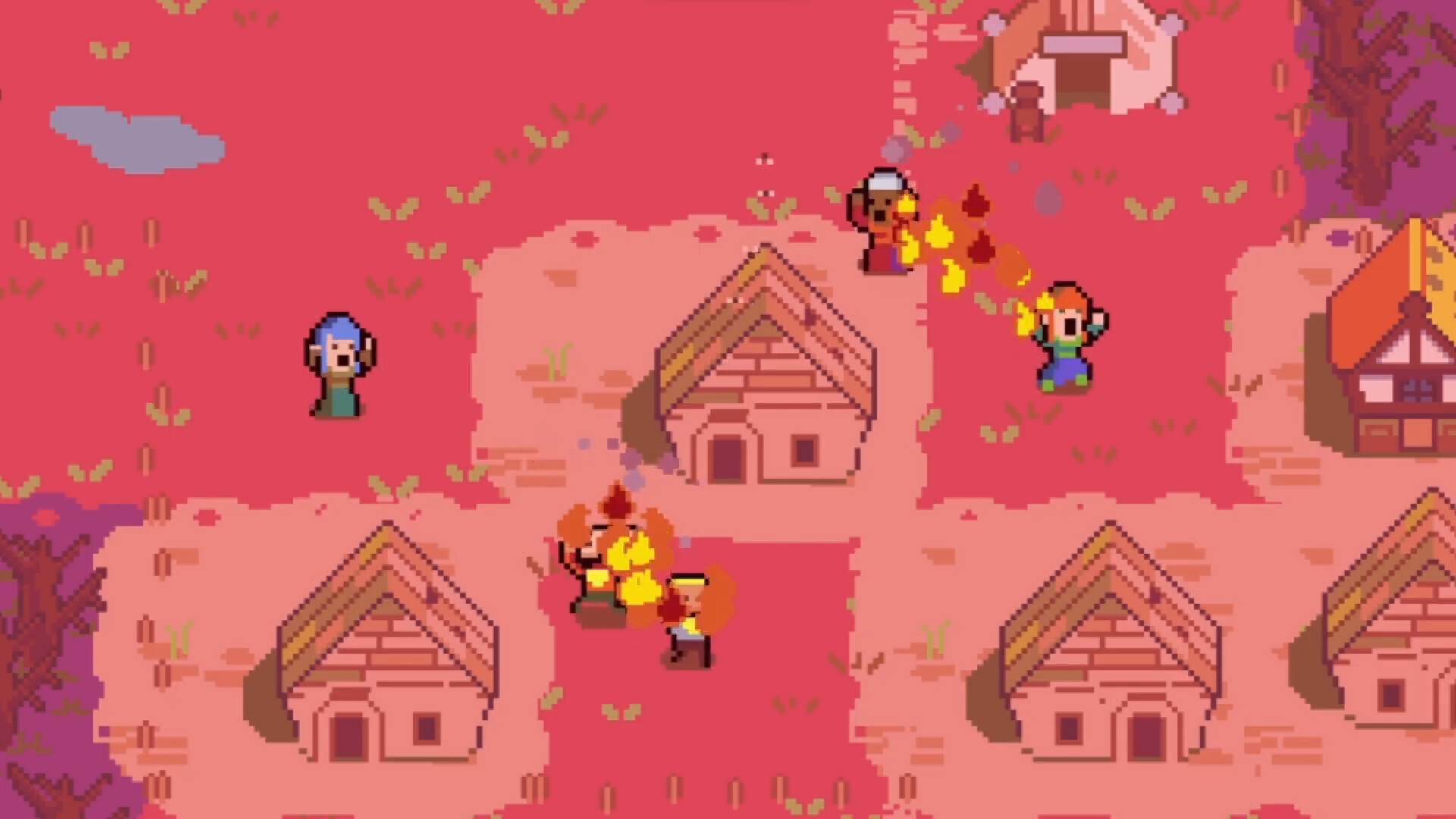
The critical success but financial struggles of lovely tactical RPG Arco sparked discussion over the risks of making games with out-there pitches and mechanics compared to staple genres that can more regularly yield success. Lee Williams, who you may know from bizarre-o dungeon-crawler Cryptmaster, which has over 1,100 "overwhelmingly positive" reviews on Steam, put a finer point on it: "One lesson I learned from Cryptmaster was, 'next time, make a roguelike...' Lots of people say they want innovation and risk-taking but it seems that very few people actually do."
Franek, the Arco developer who initially expressed frustrations that Arco "sold badly" to the point that "we're far from recoup or making decent income after the split," seemed to be nodding along with Williams. "[Not gonna lie] my roguelike sense has been so tingly," Franek replied.
Michele Pirovano, the solo creator of oddball city-builder roguelike DotAGE, which ended up being a sizable hit far beyond Pirovano's dreams, presented an interesting branch off the argument. "You can make an innovative roguelike, too," he said in a post sharing Williams' comment. DotAGE would certainly be an example to point to – its mix of turn-based strategy, village-based survival, and retro sentiments is unusual, but it clearly found an audience given its 1,832 "overwhelmingly positive" Steam reviews.
"Yes, very true," Williams said to Pirovano. "I do it myself - it's always wisest to stick to what you know you'll enjoy (I have the same ice-cream every time!). What frustrates me is that many players (and journos) are very vocal about wanting new stuff but perhaps don't realize that they have to support it."
"Be aware that you're taking a very big risk"

I reached out to Williams to talk through the challenges and potential compromises of indie game development, and he was quick to say "I feel bad for singling out roguelikes now, especially since they are one of my favorite genres to play!" He also says "my first advice to anyone would be to not come to me for advice! I rarely have good answers!"
"My point is really that the safe bet for indie devs is to stick to a handful of popular genres if you want to make a living," he continues. "I don't mean to knock those genres, it's just a shame that it's such a big risk to innovate outside of them.
"Similarly, I'm not criticizing anyone for buying 'safe' games. I do it myself - it's always wisest to stick to what you know you'll enjoy. I guess what frustrates me is that many people are very vocal about wanting new stuff but very few people seem willing to take a risk on new concepts when they do come along. You can't really have it both ways."
Williams pulled out roguelikes, which have exploded in popularity over the past decade especially, but reckons genres like life sims and deck-builders are in a similar spot. "I think what most of these have in common is that they are relatively easy to make on a small budget because they rely on content which is procedural or rewards repeated plays. It's much less work to make a game in which content is repeated and recombined rather than a more linear game in which everything is bespoke. Also, these genres are fun and produce a lot of great games!"

Rather than outright discouraging creativity or risk-taking, Williams would advise developers making or pitching more unusual games to "be aware that you're taking a very big risk." Ultimately, he says "I'd honestly tell anyone who really wanted to sell lots of copies to make a game in one of those top-selling genres, and only to innovate cautiously within that genre."
"Maybe it seems mercenary just to think in terms of copies and money but unfortunately indie devs need to eat as much as anyone else," Williams adds. He points to the gap sometimes seen between pre-launch interest and actual sales. People may say they want something new and weird, but when it comes time to actually buy it and assume some risk of their own with their time and money, they may instead look back to their old faithful genres.
"Once, I think I would have advised people to test out their idea on social media first to see if it gets traction. But recently I've noticed a trend of more unusual games which generate tremendous amounts of buzz and followers but then go on to underperform when it comes to actual sales. Again, I think that is a large part of the problem - many players think they want new things (actually that's too condescending of me - they do want new things) and they love it when these ideas appear, but they aren't necessarily prepared to buy them over safer choices."
"I still think that being original is what being indie is about"

I also spoke to Pirovano again, and he agrees "you can find roguelikes tied to almost any game genre now" thanks to the genre's significant growth in the past 10 years. He describes roguelikes as "a set of dynamics that are constantly engaging, fun, and expandable. It's strategic, it makes players attached due to its many inherent risk-based mechanics, and uses gambling-adjacent elements that tingle the brain. I think many indies are attracted to making a roguelike because they are, first of all, gamers, and they want to make something they would like to play." Many of the best roguelikes, like Hades and Slay the Spire, exemplify these traits.
Eyeing comparable trends, Pirovano points to cozy gaming, which is often defined by vibes over mechanical or stylistic terms, but remains a powerhouse among indies. "Another trend I see is taking a beloved specific game such as Pokemon and making it a whole genre, with many indies making their own take on the formula driven by their love for the franchise," he adds, alluding to the likes of Cassette Beasts and Anode Heart.
"I applaud any indie that tries to make something new and I think that is a big strength of indies, but unfortunately that means relying on luck for whether it works out or not," Pirovano says. "I was lucky with my gamble on merging city builders and roguelites, but maybe if I had released it a year before it would not have worked... I think that reducing the risk for indies while still being original means making smaller games to reduce dev time, and I see that advice being given often, but that however does not translate well into Steam sales, as players prefer longer and deeper games.
"That said, I still think that being original is what being indie is about, so to support the effort to make an original, deep and risky game, safety should come from other means, i.e. either through financing, or through working for hire (I made DotAGE while working as a freelance developer for nine years), but not through following safe trends in our indie game making! Unless of course that aligns with your passion, but that's still luck!"
This whole conversation has been an interesting slice of art as a business, and it's not lost on me that the likes of turn-based strategy game Tactical Breach Wizards and white-hot farming sim Fields of Mistria are rocketing up the Steam top sellers in the background. LocalThunk, the creator of instant-hit roguelike Balatro and yet another firm Arco proponent, said it best: "This industry can seem like such a lottery sometimes."
Another interesting corner case: One of 2023's best Metroidvanias was made in 4 months by a self-taught dev — now it's made him a life-changing amount of money.







